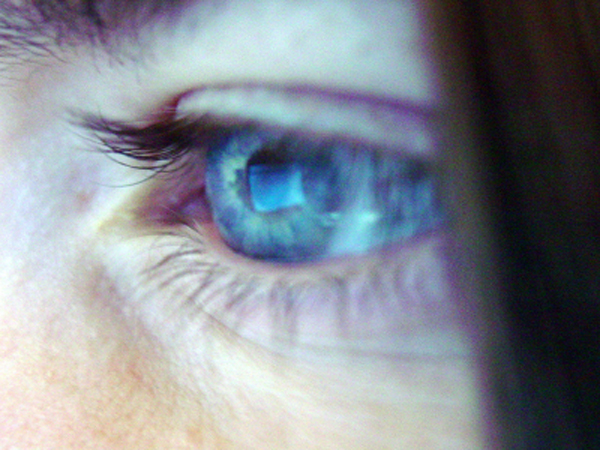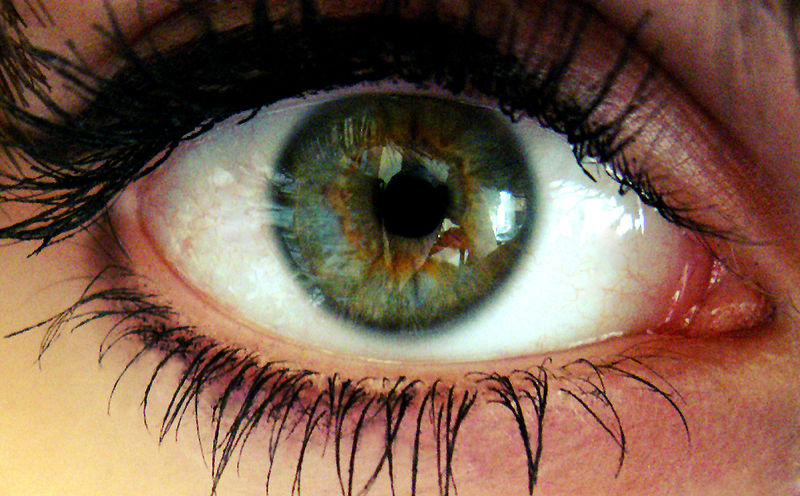UPDATE: 26 September 2019: Edward Snowden’s full interview with Brian Williams of MSNBC.
UPDATE: 13 June 2016: Edward Snowden’s HBO interview. Snowden discusses some of the technologies of surveillance used by civilians and governments today and warns about the future.
UPDATE: 7 August 2014: MIT researchers reveal new process to recover audio from ”silent” video.
UPDATE: 13 June 2020: Research engineers in Israel are now able to reconstruct conversations by recording light changes in a room induced by vibrating light sources like light bulbs.

It amazes me to read and watch stories in the press about people who commit brazen crimes in front of surveillance cameras. It seems many people have yet to get the message: in America, the caretakers of both private and public spaces have free reign to watch and record everything people do.
It’s not only dedicated cameras that lock on a face at a thousand yards, zoom, and switch to hi-resolution — something I noticed in the offices of a local college and received an explanation for by a proud employee.
It’s also directional microphones, smart contact lenses with embedded cameras, invasive computer monitoring (including unwelcome video and audio takeovers of computers, cell phones, iPads, and even game consoles) and sophisticated data collection and analysis through the acquisition of land-line records and receipts for purchases and recreational activities.
Even our automobiles — through technologies like On-Star, satellite radio, hidden event data recorders (black-box technology), and GPS — provide easy access to anyone who decides to observe us.
And I’m not talking about the federal government. Having grown up in an NSA family, I’m sensitive, somewhat, to government spying on civilians.
Perhaps things have changed, and no one told me, but I learned as a kid that unless you are a terrorist (when I was young, targets had to be communist), people have little to fear from federal surveillance, because it operates under a meticulous set of safeguards and protections of our civil liberties — at least as long as we are physically located inside the United States.
That doesn’t mean the Feds don’t watch and listen. It means they don’t act against individuals based on what they learn.

No such safeguards exist in the private sector. What I’m referring to is surveillance by private citizens, business owners, church and other civic leaders and state officials, like local politicians and the local police. Surveillance by local groups and private individuals make them, sometimes, even more powerful and influential than the federal government itself — at least inside the United States — because they are free to act against private citizens based on what they learn from eavesdropping.
This surveillance is completely out of control and has dramatically shifted the balance of power away from average citizens who try to exercise their freedoms under the Constitution. Surveillance is often portrayed as passive; nobody reviews the audio/video/data records unless a crime is committed that requires a review.
The argument obfuscates the hard fact that the wealthy and the powerful — both groups and individuals — through the mechanism of a pernicious surveillance — are currently maximizing and protecting their already enormous advantages by getting a heads-up on suspect individuals and groups who they think may plan to challenge them.
Many average people don’t believe they are out-foxed and out-gunned, because they’ve never challenged anyone powerful. Take my word for it. Though not often, the truth is I have challenged some powerful people a few times in my life. In every case I had to back down, either to protect those I love or myself.
In one situation, my physical safety was threatened by a Cadillac driving thug sent from a well-known company that advertised on television. He could not have found me if he didn’t have me under surveillance. He got my attention and forced me to rethink about in what kind of country I was living.
But until recently, the powerful haven’t been able to inject themselves into our public and private spaces as effortlessly as they now do. It used to be easier for average citizens and yes, activists, to find a private place to plan and gather support. No more.
Most people who intend to use their presumably guaranteed freedoms under the Constitution to challenge the established order of things find themselves exposed and their efforts circumvented even before they know themselves what the best course of action should be.
Through effective surveillance, powerful people gain the necessary knowledge to enable them to neutralize challengers before they can organize an effective protest against whatever injustice bothers them; before they can even gather like-minded friends and moral support.

It’s not simply transparent and harmless organizations like the Mormon and Catholic churches, for example, who collect intelligence on their congregants with active spy-like organizations operating within their vast bureaucracies, arguably for benign purposes. Many public and private companies, trade organizations, charitable groups and, yes, criminal cartels do the same.
Anyone who shops, whether online, in a shopping mall, or in a particular store is under surveillance. Anyone who parks in public lots is observed. Folks who travel on interstate highways or who amble through cities are always under surveillance.
For those who have jobs, the chances are high that they are under surveillance during the time they are at work, if not after. Every keystroke made on company supplied computers is recorded and analyzed for any number of reasons by sophisticated programs designed to detect unproductive behavior.
Even when walking in our own neighborhoods, friends may watch unobserved through surveillance systems they bought at stores like Best Buy, Target, or Walmart.
When using social media like Facebook, Instagram, Twitter, or Linked-In, we are observable to people we have never met; we are certainly observable by site-administrators and their friends. And if we happen to be helpless babies, parents may, at any moment, deploy crib monitors to listen-for and watch our every move.
Can we face some unpleasant facts? Rampant spying by unaccountable civilians on other civilians is creepy, for lack of a better word. To my mind, no one is challenging the freedom-corroding surveillance power of the private sector.
Maybe no one can.
Billy Lee


Surveillance by private companies doesn’t bother me. The internet is the main channel for that type of activity. And usually it is for security or for finding target groups that would be sensitive to sales propaganda for potential buyers. And as one must surely know by now –as ye rip so shall ye be ripped off. What companies do to protect themselves from thieves has the consequence of innocent shoppers being watched as well. But that is another ball of wax.
What is acutely troubling is what your blog seems to skirt around and even ignore—the abuse of power that is currently going on with this administration as regards surveillance. It almost feels like you have missed the stories of the NSA collecting phone records and conversations of millions of Americans, or the story of Google and FB et al being pressured by government agencies to share their subscribers’ information and web posts; and of course the most damning spying and information collection scandal perpetuated by the IRS and this administration’s successful—so far—targeting of (in order to harass, intimidate and abuse) groups and individuals who have different views and oppositions to this administration’s politics.
If you haven’t seen the lists of questions the IRS demands of these targeted individuals in order to have their tax exempt status granted then you haven’t begun to feel the cold chill down your spine when it comes to abuse of surveillance. Especially when you realize sympathetic groups to this administration are not required to answer the same questions. Big Brother IS watching us as Orwell predicted but he is not looking at you from the right side of the fence.